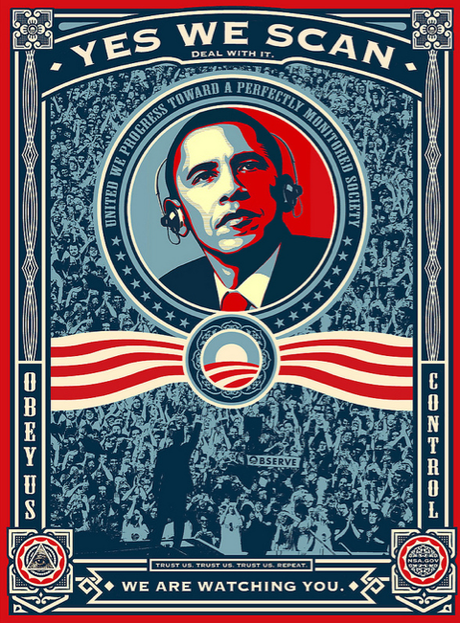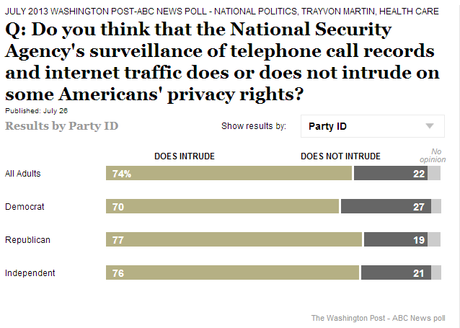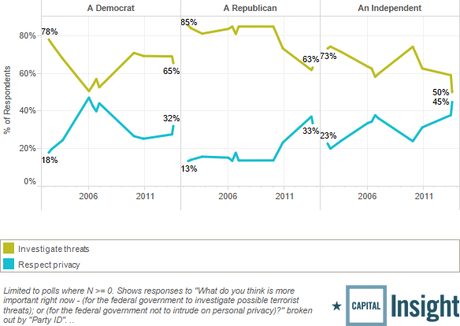 By Alan Bean
By Alan Bean
Are Bradley Manning and Edward Snowden heroes or traitors? Your answer to that question likely depends on whether you think it is more important for the federal government to investigate terrorism or to respect the civil rights of Americans.
I have always inclined toward the latter view priority. This is partly because I’m convinced the Bean family phone was tapped in the midst of our advocacy on behalf of 47 wrongfully convicted drug defendants in Tulia, Texas between 1999 and 2003. Shortly thereafter, I applied for American citizenship, a process that was repeatedly stalled because of security concerns.
Experiences like that make you suspicious of government eavesdropping. We weren’t breaking any laws. In fact, we were standing up for the constitutional rights of America citizens–which is supposed to be a good thing, right. And yet the federal government found our advocacy work suspicious, even threatening.
I could be wrong about all of this, of course. But I’m convinced that my concerns are legitimate and it is that conviction that drives my emotional reaction to the Manning-Snowden disclosures. Nothing against Barack Obama personally, but I object to his feverish, slightly paranoid response to the Snowden leaks.
Whenever national security is at issue the stakes are high. I realize that. But, like all human beings, I am biased, and my biases are rooted in personal experience.
It appears that I am in the minority on this one. Two-thirds of the American population thinks investigating terrorism trumps security concerns.
I am not anti-government, but I am a Christian who takes the doctrine of human depravity seriously. The idea isn’t that we’re all bad to the core (although some of us may be). Human depravity means that everything we do, think and believe is tainted, at best a mix of truth and falsehood, right and wrong, good and bad. Public officials, even those who appear in uniform on Meet the Press, are no exception to that rule. Human beings get things really wrong all the time.
I love us, but I don’t trust us.
As President Reagan put it, “Trust and verify”. I trust the government; but I want a watch dog looking over the shoulder of every public official in America, making sure they are performing their duties in the public interest.
Thanks to Edward Snowden we now know that the NSA has exceeded the limits established by Congress on thousands of occasions since Barack Obama took office. This troubles me and I think it ought to trouble you too.
The Washington Post-ABC News poll cited below suggests that concern over the official invasion of privacy is growing along bi-partisan lines. This isn’t primarily a culture war issue.
Not surprisingly, Democrats were far more concerned about privacy and civil rights issues when George W. Bush was president. But recent revelations have forced a re-evaluation. Three-quarters of the population agrees that our civil rights have been abused by federal agencies, but most folks think that’s just the price tag that comes with security.
For a free people, that price is too high.
Read the study and tell us what you think.
Concern over NSA privacy violations unites Democrats and Republicans, poll finds
By Scott Clement, Published: August 16 at 11:31 amE-mail the writer
Fresh disclosures that the National Security Agency broke privacy rules threatens to fuel Americans fast-growing concerns about civil liberties. But the surprising partisan consensus that programs trample on privacy marks a key feature of public assessments, representing a break from similar debates during George W. Bush’s presidency.
A July Washington Post-ABC News poll — before the latest disclosures reported by The Post — found fully 70 percent of Democrats and 77 percent of Republicans said the NSA’s phone and Internet surveillance program intrudes on some Americans’ privacy rights. What’s more, Democrats and Republicans who did see intrusions were about equally likely to say they were “not justified:” 51 and 52 percent respectively. Nearly six in 10 political independents who saw intrusions said they are unjustified.
There was less partisan agreement in 2006, when news about the George W. Bush administration’s warrantless wiretapping program broke. That January, a Post-ABC poll found 73 percent of Democrats — but only 50 percent of Republicans — said federal agencies were intruding on some Americans’ privacy rights.

The current agreement is striking given how far apart Democrats and Republicans stand on views of President Obama and virtually all other political issues, but it also marks a return to the year following the Sept. 11, 200, terrorist attacks, when overwhelming majorities in both camps prioritized terrorism investigations over invasions of personal privacy.
The agreement did not last long, as Democrats’ privacy concerns rose sharply in 2006 while Republicans maintained focus on investigations. But that commitment has waned in the past two years to nearly match Democrats: In the July Post-ABC poll, 32 percent of Democrats and 33 percent of Republicans said it’s more important to avoid privacy intrusions.

See interactive results and complete trends over time from the latest Post-ABC poll.
